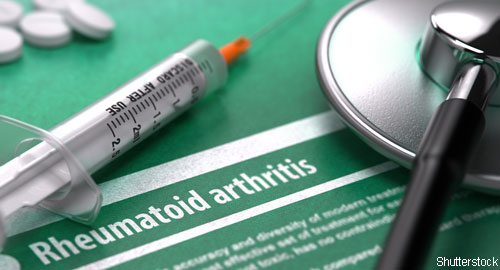 The chronic inflammatory disease periodontitis appears to result from dysbiosis of the oral microbiota. Scientists have suggested that the inflammatory response associated with the symptoms of periodontitis may be similar to that seen in patients with rheumatoid arthritis (RA). One of the foci of this exploration is the role of neutrophils in both diseases. Not only can neutrophils form neutrophil extracellular traps (NETs), which may provoke an autoimmune response, but they can also secrete myeloperoxidase (MPO), which catalyzes protein carbamylation. This post-translational modification of protein is also associated with autoantibodies that trigger inflammatory conditions, such as RA. Thus, some researchers have proposed that protein carbamylation and NETs may be important for autoimmune conditions, such as RA, as well as for periodontitis.
The chronic inflammatory disease periodontitis appears to result from dysbiosis of the oral microbiota. Scientists have suggested that the inflammatory response associated with the symptoms of periodontitis may be similar to that seen in patients with rheumatoid arthritis (RA). One of the foci of this exploration is the role of neutrophils in both diseases. Not only can neutrophils form neutrophil extracellular traps (NETs), which may provoke an autoimmune response, but they can also secrete myeloperoxidase (MPO), which catalyzes protein carbamylation. This post-translational modification of protein is also associated with autoantibodies that trigger inflammatory conditions, such as RA. Thus, some researchers have proposed that protein carbamylation and NETs may be important for autoimmune conditions, such as RA, as well as for periodontitis.
Up until now, scientists have not extensively explored the role of carbamylated protein (CarP) and NETs in periodontitis. Chihiro Kaneko, a graduate student at Niigata University Graduate School of Medical and Dental Sciences, Japan, and colleagues have investigated the role of circulating CarP and NETs in periodontitis severity, as well as evaluated the effect of periodontal treatment on periodontitis severity. They found that circulating levels of CarP and NETs are associated with periodontitis severity. Moreover, the circulating levels of CarP and NETs in patients with RA are influenced by periodontal treatment. They published the results of their retrospective case control study online Feb. 2 in Plos One.1
The investigators evaluated 40 patients with RA and periodontitis, 30 patients with periodontitis and 43 systematically and periodontally healthy controls. All individuals underwent a medical interview that assessed their smoking status and included rheumatologic and periodontal examinations, as well as blood collections. Rheumatologists and periodontists worked independently to evaluate each patient and were blinded from each other regarding rheumatologic and periodontal examinations. Clinical rheumatologic data included the disease duration, activity of RA, tender and swollen joint counts and the patient’s general assessment of their condition as scored on a visual analog scale. Clinical periodontal data included the number of teeth present, O’Leary’s plaque control record, bleeding on probing, probing depth and clinical attachment level.
The researchers found that patients with only periodontitis—as opposed to periodontitis and RA—had significantly higher circulating levels of CarP than did controls. In contrast, serum NETs were significantly correlated with RA activity. Patients with both RA and periodontitis had significantly higher levels of CarP and NETs than patients in the control group. Moreover, the serum levels of these compounds were significantly correlated positively with the mean values of probing depth and clinical attachment level in the patients with RA and periodontitis.
Approximately half of the patients (22) with periodontitis and RA received periodontal treatment, oral hygiene instruction and full-mouth supragingival scaling with ultrasonic instruments. Blood work was again performed two months after periodontal treatment on these patients, revealing that serum levels of CarP and NETs significantly decreased post-treatment, even though the distribution and dose of RA treatment with corticosteroids, NSAIDs or conventional synthetic disease-modifying anti-rheumatic drugs were the same at baseline and reassessment. The authors concluded their paper by suggesting that there may be an underlying shared pathogenic mechanism behind RA and periodontitis.
Lara C. Pullen, PhD, is a medical writer based in the Chicago area.
Reference
- Kaneko C, Kobayashi T, Ito S3, et al. Circulating levels of carbamylated protein and neutrophil extracellular traps are associated with periodontitis severity in patients with rheumatoid arthritis: A pilot case-control study. PLoS One. 2018 Feb 2;13(2):e0192365. doi: 10.1371/journal.pone.0192365. eCollection 2018.

